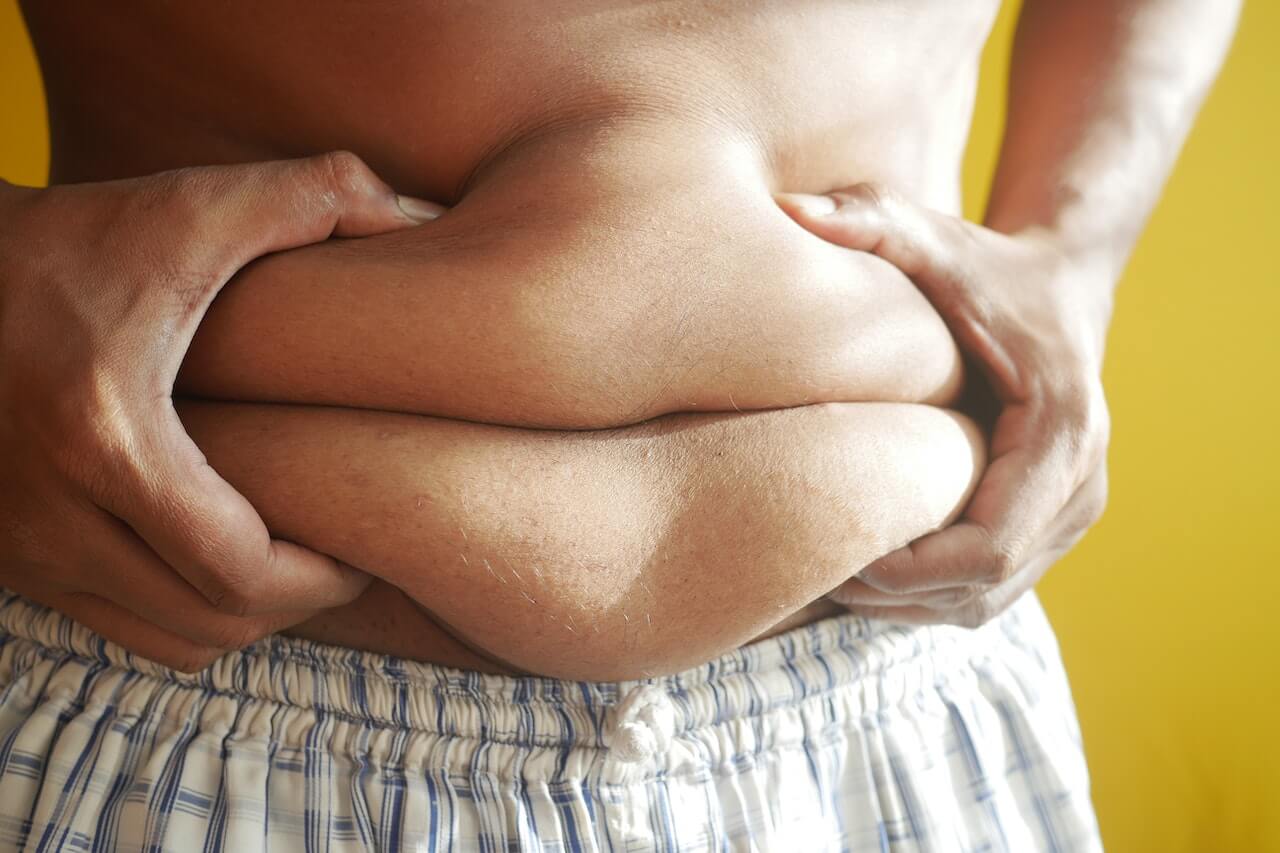Iodine deficiency is one of the most common nutrient deficiencies, and it’s estimated to affect up to 45% of people worldwide.1 Iodine is an essential mineral that supports metabolism and proper brain development, so consuming an adequate amount is crucial to your health.
In this article we’ll cover the specific role iodine plays in the body, common signs of iodine deficiency, and foods you can focus on to get more iodine in your diet.
{{mid-cta}}
What is Iodine Deficiency?
Iodine deficiency occurs when your body doesn’t have enough iodine. Iodine is solely obtained through your diet, so when you don’t consume a sufficient amount of it from food, your body can become depleted. Low iodine levels interfere with production of the thyroid hormones T3 and T4, which can result in many health concerns.
Iodine deficiency has primarily been observed in developing countries, and hasn’t been an issue in the United States since the 1940’s. However, mild-to-moderate iodine deficiency now appears to be increasing in industrialized countries like the United States, United Kingdom, and Australia.1
Why Does Your Body Need Iodine?
Iodine is an essential mineral; your body requires it for various biological functions, so it’s a nutrient that must be obtained through your diet. Iodine is a component of the thyroid hormones thyroxine (T4) and triiodothyronine (T3), which are involved in may important processes including fetal and infant development, cognition, and energy and metabolism.2
Iodine and Thyroid Function
The thyroid is a small but powerful butterfly-shaped gland located in your neck. It’s a part of the endocrine system and is responsible for making and releasing the following hormones:
- Thyroxine (T4): This is the primary hormone your thyroid produces, however it’s considered to be inactive. It’s referred to as T4 because it contains four iodine atoms. Once T4 is made, your thyroid releases it into your bloodstream where specific cells convert it to the active hormone T3 by removing an iodine atom.
- Triiodothyronine (T3): T3 is produced in small amounts by your thyroid, but the majority of it comes from the conversion of T4 to T3. This active hormone influences heart rate, body temperature, digestion, and metabolism among other things.
- Reverse triiodothyronine (RT3): RT3 reverses the effects of T3.
- Calcitonin: Calcitonin regulates the amount of calcium in your blood
Iodine is a critical component of thyroid hormone production. Without it, T3 and T4 are directly impacted, which causes a cascade of negative effects throughout the body.
9 Symptoms of Iodine Deficiency
Low levels of iodine can cause a host of thyroid related health issues and possible autoimmune reactions. Here are signs and symptoms to look for:
Goiter
When you're deficient in iodine, your thyroid gland grows larger as it tries to keep up with the demand for iodine. This condition is called goiter. You may notice symptoms like trouble breathing or difficulty swallowing.3
Hypothyroidism
Many people who have insufficient iodine levels develop hypothyroidism, or underactive thyroid.4 Signs of hypothyroidism include the below symptoms.
Weight gain
Your thyroid gland directly influences metabolism, so when it doesn’t get the iodine it needs to function properly it can cause you to gain weight.

Fatigue
Feeling tired and sluggish is one of the most common symptoms reported.5
Inability to tolerate cold temperatures
Body temperature is regulated by the thyroid hormones. If you have an underactive thyroid and your body does not possess not enough thyroid hormones, you may often feel cold, or be more sensitive to cold temperatures.4
Muscle weakness
Some people with hypothyroidism experience neuromuscular symptoms like slowed movements, or tingling in the hands and feet.5
Brain fog
One study showed that more than half of patients with hypothyroidism experience some type of cognitive impairment.5 The neurological impact appears to be even more pronounced in children. Moderate-severe iodine deficiency is associated with a 12 to 13.5 point reduction in childhood IQ scores.6
Dry coarse skin
Your skin and nails are directly affected by T3 and T4. Inadequate iodine leads to insufficient thyroid hormone which causes changes in your skin's sweat glands resulting in rough dry skin.7
Dry hair/hair loss
Your hair follicles have thyroid hormone receptors, so hair is also impacted by hypothyroidism. Changes like dry brittle hair, alopecia, and loss of the lateral third of the eyebrow is common.7
Complications of Iodine Deficiency
Iodine is crucial for proper fetal development. In the early stages of pregnancy, the fetus relies solely on the mother’s thyroid hormone. Iodine requirements significantly increase during pregnancy as the mother produces about 50% more T4 to provide for both her and the baby.2
Moderate to severe iodine deficiency during pregnancy can lead to the following complications for pregnant women:
- Infertility
- Miscarriage
- Stillbirth
- Preterm labor
- Low birth weight8
How Much Iodine Per Day? Finding the Right Balance
The recommended daily amount of iodine for adults is 150 mcg. Women who are pregnant are recommended to get 220 mcg, and lactating and breastfeeding women should have 290 mcg of iodine per day.2 Certain health conditions may impact your iodine needs, so talk to your doctor to find out your specific iodine requirements.
Iodine is well tolerated up to 1,100 mcg per day for adults, but excessive iodine can also interfere with thyroid hormone production. Consuming too much iodine can actually cause symptoms similar to consuming too little iodine, as both prevent the thyroid from functioning properly.2
Sources of Iodine: 6 Foods Rich in Iodine
Focusing on foods that are high in iodine is the best way to prevent iodine deficiency. In addition to being rich in iodine, whole food sources contain other minerals and phytonutrients that work in conjunction with iodine to support thyroid health.

Below are the top iodine rich foods:9
- Seaweed
Seaweed and kelp are an excellent sources of iodine, and also contain iron and zinc which play a role in optimal thyroid functioning. Both fresh and dried seaweed are great options.
- Cod
Cod, a mild tasting white fish, is packed with iodine. Just 3 oz of cod provides 99 mcg. Cod is versatile and easy to make, try it baked, grilled, or pan fried.
- Milk
Dairy products are all rich in iodine, but cow’s milk is the best source. One 8 oz cup will give you 99 mcg of iodine.
- Potato
Iodine is abundant in soil so root vegetables like potatoes are able to absorb it. One medium baked potato will provide more than one third of your daily iodine requirement.
- Shrimp
Shrimp is a good source of iodine and is also high in selenium, another mineral that is essential for thyroid health. Choose wild-caught shrimp over farmed shrimp whenever possible to optimize your iodine intake.
- Iodized salt
Fortification of table salt with iodide began in the early 20th century and has drastically reduced iodine deficiency.1 One gram of salt provides 77 mcg of iodine.
Iodine Deficiency Treatment
Your healthcare provider can determine if you’re deficient in iodine through a urine sample, or by thyroid imaging like ultrasounds or scans. A thyroid blood test can also help diagnose iodine deficiency and possible hyperthyroidism.3,10
Treatment for insufficient iodine typically involves iodine supplements, and focusing on iodine rich foods. Iodine supplements can interact with certain medications like ACE inhibitors and diuretics, so you should talk to your doctor before starting any new supplement.2
Due to the serious implications of iodine deficiency during pregnancy, women who are pregnant are advised to take a prenatal multivitamin containing iodine daily.10
Using a CGM with Signos: Real-Time Data, Backed by AI
Signos pairs a real-time glucose biosensor with AI trained on tens of millions of data points to deliver personalized, science-backed guidance for weight management and health. See exactly how your body responds, and take action.
Learn how it works. Ready to get started? Join now.
Topics discussed in this article:
References
- Hatch-McChesney, A., & Lieberman, H. R. (2022). Iodine and Iodine Deficiency: A Comprehensive Review of a Re-Emerging Issue. Nutrients, 14(17), 3474. https://doi.org/10.3390/nu14173474
- Iodine. (n.d.). Office of Dietary Supplements. https://ods.od.nih.gov/factsheets/Iodine-HealthProfessional/#h12
- Iodine deficiency. (n.d.) Cleveland Clinic. https://my.clevelandclinic.org/health/diseases/23417-iodine-deficiency
- Hypothyroidism. (n.d.) Cleveland Clinic. https://my.clevelandclinic.org/health/diseases/12120-hypothyroidism
- Kostoglou-Athanassiou, I., & Ntalles, K. (2010). Hypothyroidism - new aspects of an old disease. Hippokratia, 14(2), 82–87.
- Zimmermann, M. (2009b). Iodine deficiency in pregnancy and the effects of maternal iodine supplementation on the offspring: a review. The American Journal of Clinical Nutrition, 89(2), 668S-672S. https://doi.org/10.3945/ajcn.2008.26811c
- Safer J. D. (2011). Thyroid hormone action on skin. Dermato-endocrinology, 3(3), 211–215. https://doi.org/10.4161/derm.3.3.17027
- Lee S. Y. (2021). Editorial: Consequences of Iodine Deficiency in Pregnancy. Frontiers in endocrinology, 12, 740239. https://doi.org/10.3389/fendo.2021.740239
- Iodine. (2023, January 3). Linus Pauling Institute. https://lpi.oregonstate.edu/mic/minerals/iodine#food-sources
- American Thyroid Association. (2023, July 28). Iodine deficiency. https://www.thyroid.org/iodine-deficiency/




.svg)










.svg)
.svg)
.svg)
.svg)
.svg)
.svg)
.svg)
